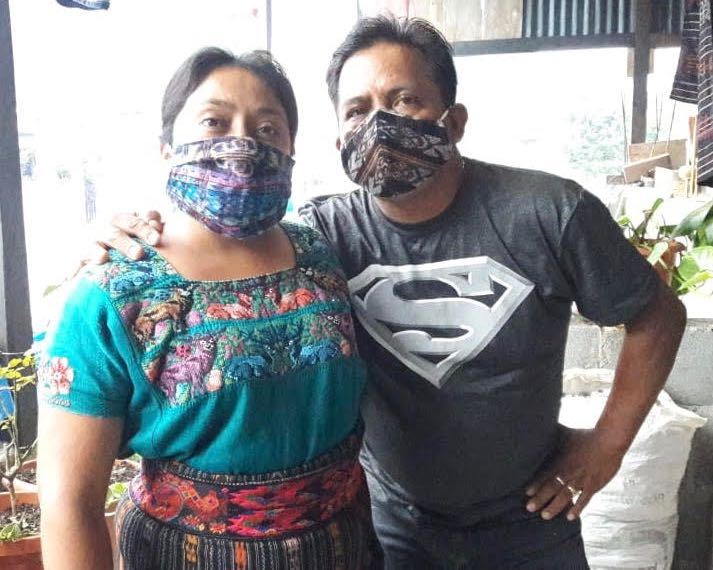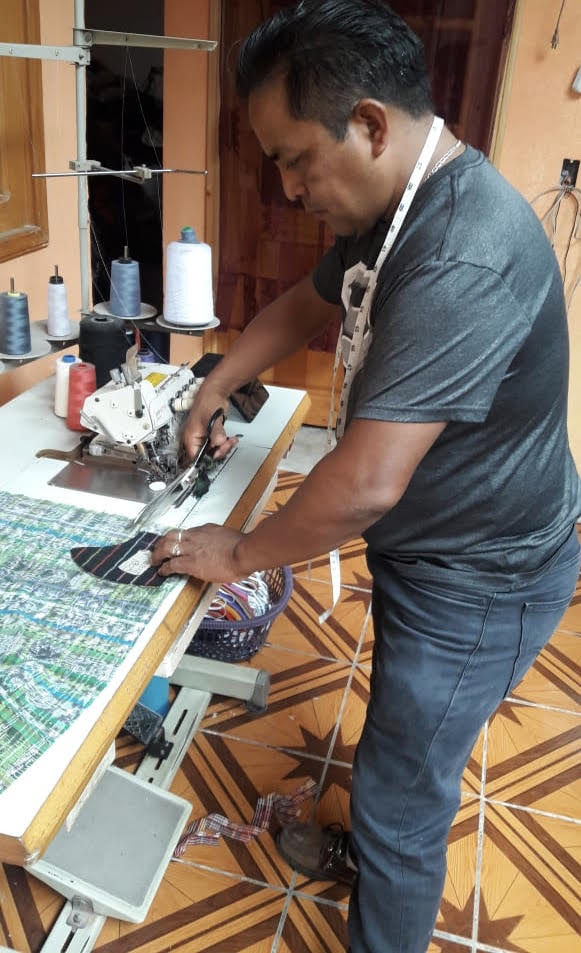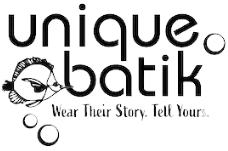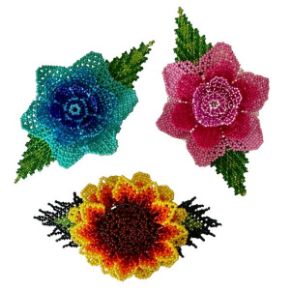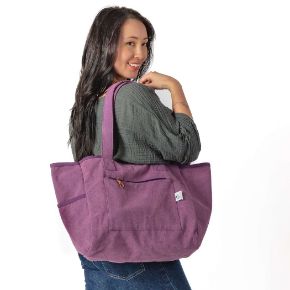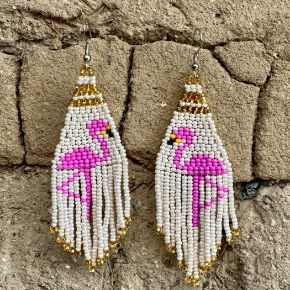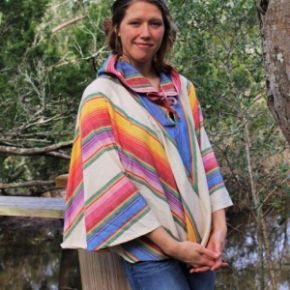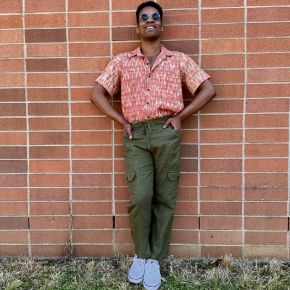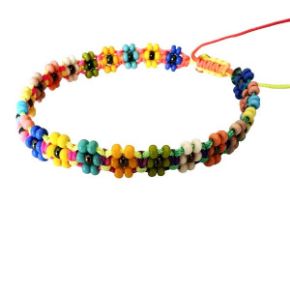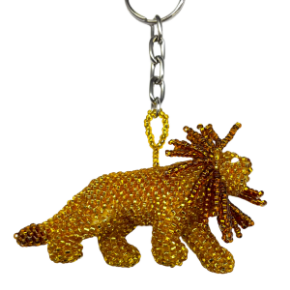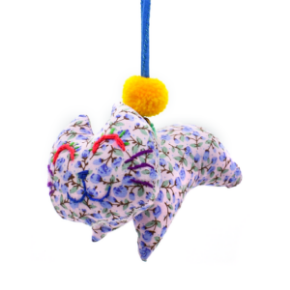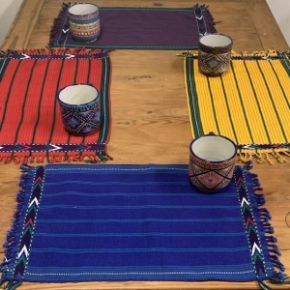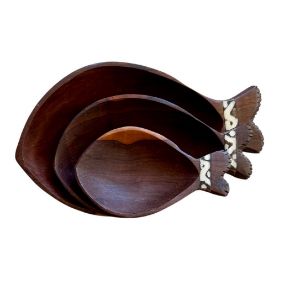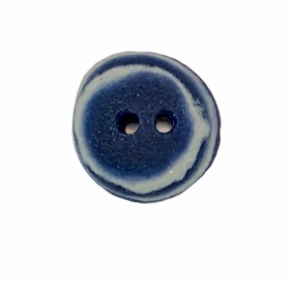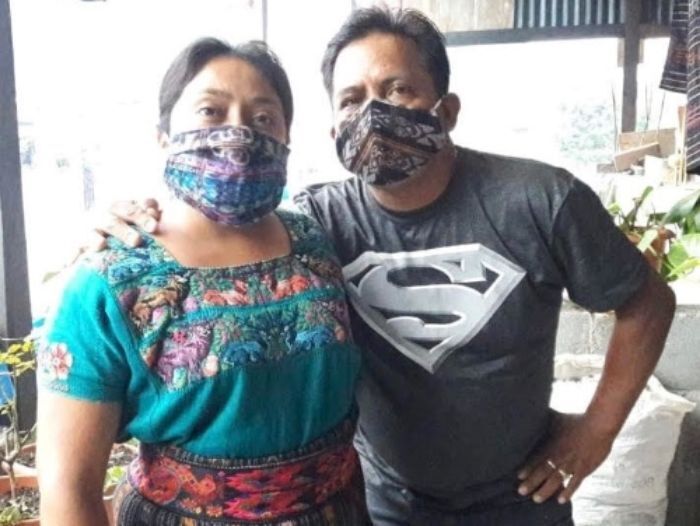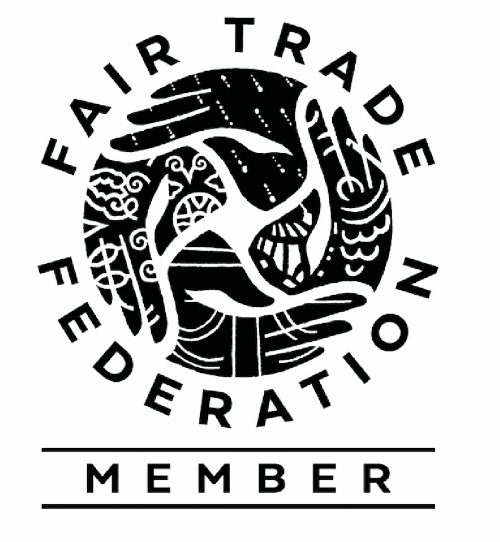Sparkling beads dance across her hands as Carmelita Ramos creates earrings and bracelets to sell to customers in the distant land of the United States. Her dreams of earning a living and educating her children were once just as distant, but through her work and creativity and her connection with fair trade, those dreams have become a reality. Carmelita’s story did not begin so differently from that of many, many other women in Guatemala. Being able to sell her handicrafts to a fair trade company like Unique Batik has given her the hand up -- not handout -- that changed the course of her life.
Born into a family of thirteen children in the rural mountain village of San Jorge in the department of Solola, Carmelita’s challenges in life started early. None of the girls in her family were sent to school. This is still true for many girls in Guatemala; of the two million children who do not attend school, most are indigenous girls living in rural areas. In fact, 90% of these girls do not attend secondary school. Carmelita was no exception.
With no education, Carmelita’s options were few. She became a maid at a young age, which is a typical path, with 98% of domestic workers being women and 70% of domestic workers being indigenous Maya. However, Carmelita’s story took a turn when, through her employers, she began making jewelry to sell for export. She immediately showed promise as a designer, creating an original bracelet featuring bamboo and making oven mitts out of scrap fabric. For her first significant order, she received a paycheck of Q1200 (the equivalent of $150 US dollars). It brought tears to her eyes because she had never seen a Q100 note.
Carmelita’s creativity and ingenuity have been a big factor in her success as an artisan. Now part of a jewelry making cooperative of eleven people, all family members, Carmelita sources the beading materials herself and trains co-op members how to make new jewelry designs. Unlike many other artisans in the area, when Carmelita’s group creates exclusive new designs for a customer, they do not sell them to anyone else. The group members work from their own homes, but confer on pricing, production, and any other issues that might come up.
Today, not only has Carmelita’s story defied expectations, but her leadership of the artisan co-op has influenced the lives of many others. Her own daughter, Maria, has graduated with a degree in business administration. She has partially paid for her education and transportation to school through part-time work making beaded jewelry with the artisan co-op. Another group member, Marta, has five children, for whom Marta desperately wanted an education. Her husband did not support her dream, but through her earnings as an artisan, all of Marta’s children have gone to school. Since the time her jewelry work began, Carmelita and her husband, Juan, have gone from living with her mother-in-law to buying their own land and building a two-story cement block house -- an extraordinary accomplishment for a woman who started with no education and no means.
The journey has not been without its challenges. Competition in the area is fierce for beaders, keeping their wages low. There is even a “bead mafia” which controls the availability of beads, so Carmelita’s group is not always able to source the colors they need. US buyers are not always reliable, and it is the long-term, fair trade relationship with Unique Batik that has made a difference in the success of Carmelita’s group. Ten years ago, a US buyer placed a big order for beaded jewelry from women in Carmelita’s village, then pulled out without paying the women for their work. A mutual acquaintance gave Carmelita Unique Batik owner Sharon Gale’s phone number. Carmelita called Sharon for help, and that began the relationship between Unique Batik and Carmelita’s cooperative.
Carmelita’s talent as a designer is special, but without the opportunities created by fair trade purchases, even with all her hard work and creativity, the story might not have such a happy ending. Given the opportunity to be treated with integrity and turn her gifts into a secure life for her family, Carmelita has transformed her own narrative. Thanks for being part of her happy ending!
